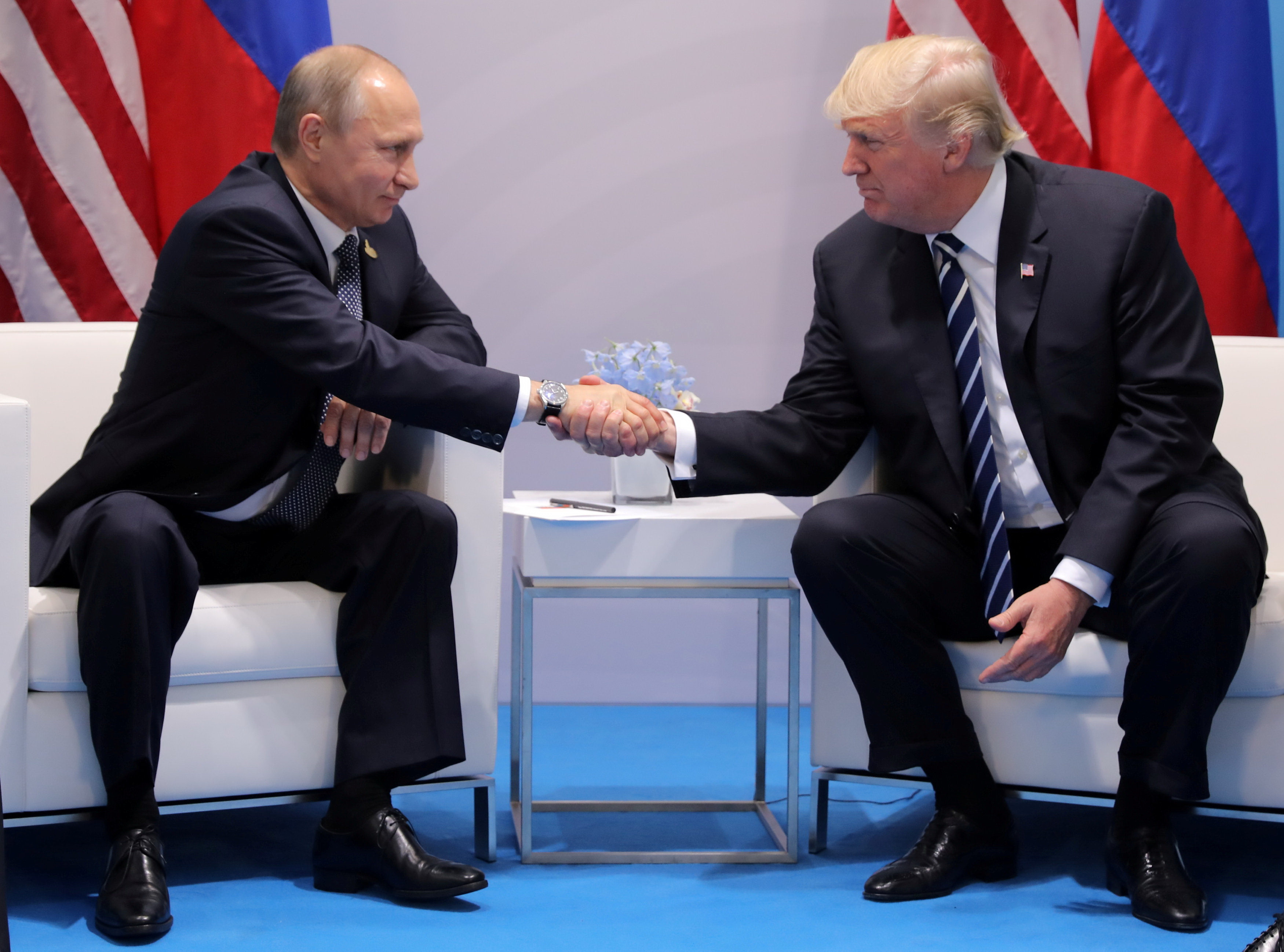On July 25, the U.S. Congress in a rare display of bipartisanship overwhelmingly imposed new sanctions on Russia for its interference in U.S. presidential elections in 2016, for its annexation of Crimea in 2014, and for its ongoing covert destabilization efforts in Eastern Ukraine. Legislation also authorizes Congress to block any attempt by Trump to remove or impose Russian sanctions in the future. The House vote was 419 to 3; the Senate 98 to 2.
Congressional factions fear that Trump is damaging the U.S. by cozying up to Russian President Vladimir Putin who has demonstrated that he wishes the U.S. nothing but ill-will and that he can manipulate Trump into furthering Russia’s ambitions.
Putin responded immediately by demanding the U.S. remove 755 U.S. embassy workers and close two U.S. facilities. Russia denies any wrongdoing.
A fragmented U.S. government
In spite of congressional unity in standing up to Trump, the U.S. government is deeply fragmented on how to manage Russian policy. It is unclear what U.S. policy is and who controls it. With the world in chaos and nuclear weapons proliferating, this is not something one wants to hear.
Trump remains conflicted on Russia. For weeks, he denied U.S. intelligence agency findings that Russia had interfered on his behalf to undermine Hillary Clinton’s presidential campaign. Under intense pressure, Trump finally acknowledged Russia’s complicity.
But Trump blamed electoral interference not on Russia, but on President Barack Obama and Clinton’s poor handling of the Ukrainian “revolution,” Obama’s delayed, weak response to Russia’s interference – the expulsion of 35 Russian diplomats and closure of two “recreational” sites in the U.S., and Clinton’s perceived interference in earlier Russian elections. Trump also blamed U.S. intelligence agencies for leaking damaging information about him and his policies.
To make matters worse, Trump and his advisors are under investigation by Congress, the FBI and a special prosecutor looking into claims that the Trump campaign colluded with Russian intelligence services to gather information to use against the Clinton campaign. Then bizarrely, there is another set of investigations concerning Russians providing false information about Trump to hurt his campaign. Trump’s opponents, especially in the mass media, are trying to paralyze his administration.
While Trump is flailing around, his own administration is opposing him on Russia. The Defense Department (Sec. James Mattis), State Department (Sec. Rex Tillerson), National Security Council (Dir. H.R. McMaster), and the UN ambassador (Nikki Haley) are taking more or less a “hard line” against Russia.
Ron Maxwell, at the American Conservative Magazine, finds that the agencies are being staffed with neo-conservatives (neocons), who provided much of the foreign policy ground work for George W. Bush and Mitt Romney (2012 presidential candidate) advocating global U.S. intervention. Many are anti-Trump. For example, The Republic of Georgia – now partly occupied by Russian forces since the George W. Bush administration – and NATO are holding joint military exercises in a show of strength against Russia.
But Trump’s senior White House advisers, Steve Bannon and son-in-law Jared Kushner, are huge fans of Putin and are soft-liners on Russia.
U.S. Russian policy is creating whiplash as different powers compete.
Putin’s response
Putin surrogates have said retaliation against U.S. sanctions were tempered so as not to hurt Trump, but rather were targeted at Congress.
The 755 workers seem symbolic because this would make the U.S. embassy in Russia the same size as the Russian embassy in the U.S.
Even the expulsion of 755 diplomats is not what it seems. Putin is allowing the U.S. to determine which embassy staff will go. The vast majority of the 1,200-plus staff is Russian nationals in support positions including drivers, maintenance workers, librarians, and the like. They are not just in Moscow but are spread out in St Petersburg, Yekaterinburg and Vladivostok.
1986 was the last time Russia downsized the U.S. embassy. A U.S. diplomat there, Steven Pifer, once U.S. ambassador to Ukraine, remembers that the embassy was still able to function well. Pifer believes they will do so again.
Recall also that under Obama, Putin did not retaliate against U.S. sanctions for electoral tampering; some think to keep U.S.-Russia relations positive regardless of who won the presidency in 2016, Trump or Clinton.
Also recall that Putin’s responses in the past have not been dramatic. In 2012, Russia expelled the U.S. Agency for International Development (USAID) for funding pro-democracy, anti-government groups. And in 2014, Russia threw out the Defense Threat Reduction Agency – which works to eliminate weapons of mass destruction – in response to Ukraine.
Importantly, Putin did not retaliate against the private sector.
While impossible to read Putin’s mind, he might still hold out hope that he can keep Trump in his corner.
Unintended consequences
Congress was careful not to affect the oil pipeline running from Kazakhstan through Russia to Ukraine and the natural gas pipeline running from Russia to Germany. But, on July 31, Germany denounced the Russian sanctions and is calling on the European Union to take “counter measures.” It appears that rather than getting the EU on side by constraining Trump, the EU is uniting against the U.S.
Putin checkmates U.S.
Putin has created chaos in the U.S. political system by setting the president, Congress and the government against one another. He has further fractured the European-American alliance, in the process creating doubt that the U.S. will stand by its allies and forcing them to fend for themselves. He and his ally Chinese President Xi Jinping have blocked U.S. proposed sanctions against Syria, North Korea and Iran in the UN Security Council. He continues to threaten Eastern Ukraine, Georgia and the Baltic states without much pushback.
Putin’s Russia has survived previous sanctions and will likely survive these as well. To Putin, it must seem a small price to pay to restore Russia to its former grandeur and consolidate his power.
Like us on Facebook or follow us on Twitter to get the latest news about Vietnam!


















































